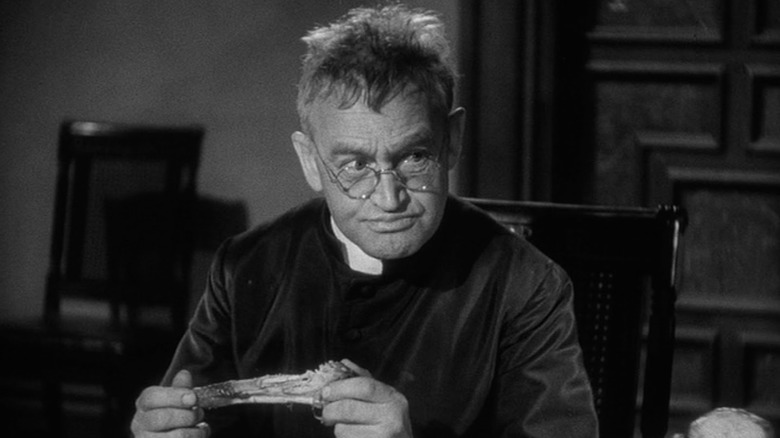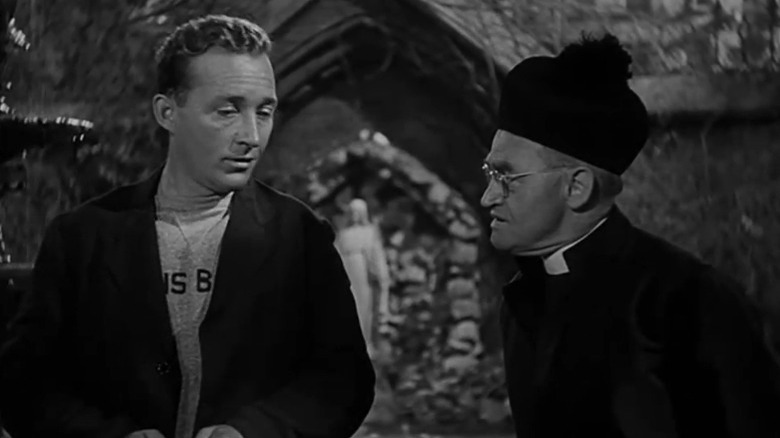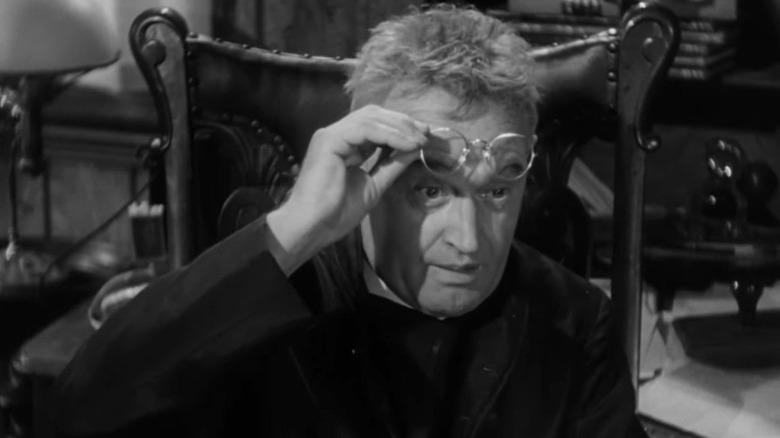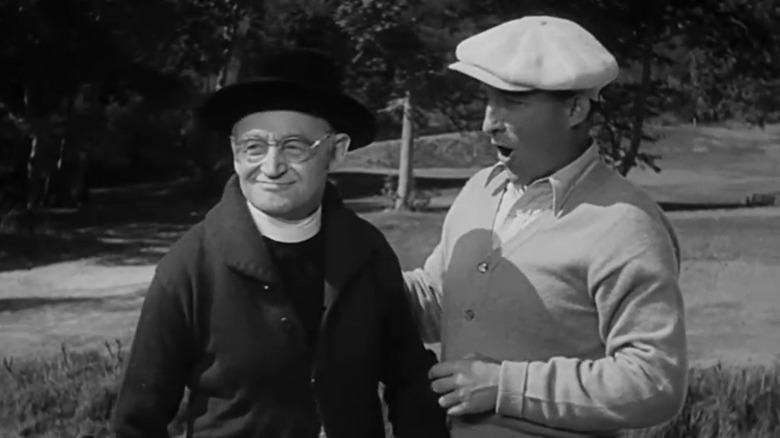Barry Fitzgerald Is The Only Person Nominated For Best Actor And Supporting Actor Oscars For The Same Film
Every year the Academy of Motion Picture Arts and Sciences gives out shiny gold Oscar statuettes to actors in four categories: Best Actor, Best Actress, Best Supporting Actor, and Best Supporting Actress. But believe it or not, what they don't do, anywhere in the Oscar rulebook, is clearly define what the difference is between a lead performance and a supporting performance.
In the end, they leave that decision up to the Academy voters, who can sometimes make weird calls. How the heck they thought Viola Davis was just "supporting" Denzel Washington in "Fences" is anyone's guess, for example. But the thing is, one rule the Academy does have for these categories, is that you are absolutely not allowed to be nominated for Best Lead and Best Supporting for the same performance, in the same film, in the same year.
At least, not anymore. Because someone already did get nominated for Best Actor and Supporting Actor for the same movie, in the same year, way back in 1945.
Going both ways
The 17th Academy Awards ceremony was a big one. It was the first time in 13 years that there were only five nominees for Best Picture after the Academy had expanded the race in the early 1930s. And looking back, it's genuinely impressive how many nominees throughout all the categories are still beloved today, like the classic film noirs "Double Indemnity" and "Laura," the high-concept thrillers "Gaslight" and "Lifeboat," and the iconic musical "Meet Me in St. Louis."
But the films with the most nominations that year were "Wilson," a biopic of the 28th American president Woodrow Wilson, and "Going My Way," a feel-good musical drama and the highest-grossing movie of 1944. Both films were nominated for 10 Academy Awards, but if you want to get technical, "Going My Way" was fudging the numbers a bit, because two of those nominations were for the very same actor, giving the very same performance.
Leo McCarey's "Going My Way" stars Bing Crosby as Father Chuck O'Malley, a young and worldly priest who gets assigned to assist a curmudgeonly old fuddy-duddy at a rundown church. Barry Fitzgerald plays the crotchety stick in the mud Father Fitzgibbon, who gradually realizes he needs to lighten up on the dogma if he's going to help his parishioners in the swingin' 1940s, when times have changed and priests like Father O'Malley sing cutesy songs like "Swinging on a Star."
It's a very sweet movie, a very popular movie, and a bit of a conundrum. Are Crosby and Fitzgerald co-leads, since the story is about both of them equally, or did Fitzgerald technically give a supporting performance, since his co-star was — let's be fair here — Bing frickin' Crosby, one of the best actors of the decade?
The voters said "both."
Or would you like to be a supporting star?
Barry Fitzgerald was nominated for Best Actor, right alongside his co-star Bing Crosby, as well as Best Supporting Actor for "Going My Way," a feat which has never been replicated. Crosby won the Oscar for Best Actor and Fitzgerald won Best Supporting Actor. The film also won Best Picture, Best Director, Best Screenplay, Best Original Motion Picture Story (back when that category was a thing), and Best Original Song for "Swinging on a Star."
It was, again, a competitive year. In addition to his co-star, Bing Crosby also won out over Charles Boyer's unforgettably evil turn in "Gaslight," and Cary Grant for "None But the Lonely Heart." Fitzgerald won out over Clifton Webb's incredible performance in "Laura," and Monty Woolley's heart-tugging performance in "Since You Went Away."
Barry Fitzgerald was having a weird couple of years. He was accused of manslaughter in March of 1944 for his alleged role in a car crash that resulted in an 87-year-old woman's death and serious injuries to her 57-year-old daughter. The case was dismissed barely two months before he won the Oscar. The incident did seemingly very little to affect the actor's career. The New York Times even printed a fawning puff piece at the time that didn't even mention it but did conclude with the revelation that Fitzgerald liked America because we serve our pies with ice cream.
Actually, Fitzgerald — a lifelong character actor who was already in his 50s — became one of Hollywood's more in-demand actors after "Going My Way," and wound up starring in high-profile productions like the 1945 Agatha Christie adaptation "And Then There Were None," Jules Dassin's acclaimed film noir "The Naked City," and John Ford's Oscar-winning romance, "The Quiet Man."
Oops (the Academy didn't do it again)
Hollywood may have responded to "Going My Way" by making Barry Fitzgerald a star, but the Academy responded by making sure this incident never happened again. And it hasn't. While the Academy still leaves the decision to nominate a performer in the lead or supporting categories entirely up to the voters, the Oscar rulebook does not allow the same actor to be nominated twice for the same film.
Quoth the Academy: "If any performance should receive votes in both categories, the achievement shall be placed only on the ballot in that category in which, during the tabulation process, it first receives the required number of votes to be nominated. In the event that the performance receives the number of votes required to be nominated in both categories simultaneously, the achievement shall be placed only on the ballot in that category in which it receives the greater percentage of the total votes."
It's weird that the rule stipulates that what matters most is whichever category gets tabulated first, and not whichever category has the most votes (which makes more sense), but either way, the damage was controlled and they won't have any more "Barry Fitzgerald Incidents" in the future.
Instead, they just have a whole bunch of incidents, practically every single year, where a performance that looks to all the world like a leading role gets campaigned as "supporting," just because nobody wants to split the actor's votes across two categories and cost them a nomination.



